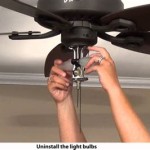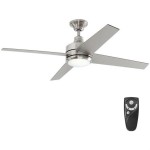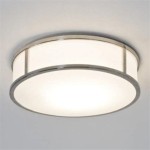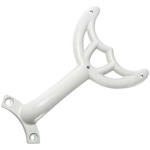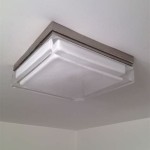Essential Aspects of Ceiling Recessed Lighting Layout
Ceiling recessed lighting is a versatile and highly effective way to illuminate any space. By integrating fixtures into the ceiling, this type of lighting provides a clean and sophisticated aesthetic while distributing light evenly throughout a room. However, careful planning is essential to achieve the desired ambiance and functionality.
### Types of Recessed LightsRecessed lights come in a variety of styles and sizes to suit different needs.
- Gimbal or Adjustable Trim: These lights feature a movable trim that allows for directional adjustment, creating focused beams or ambient illumination.
- Fixed Trim: These lights have a fixed trim, providing a clean and uniform appearance with a diffused light spread.
- Eyeball: These lights have a rounded, adjustable head that can be tilted and rotated, allowing for precise light placement.
When designing a recessed lighting layout, several key factors should be considered:
- Room Size and Shape: Larger rooms require more fixtures to achieve even illumination, while smaller spaces may only need a few.
- Ceiling Height: High ceilings require fixtures with wider beam angles to compensate for the distance to the floor.
- Furniture Placement: Take into account furniture arrangements and avoid placing fixtures directly above or over sensitive surfaces.
- Natural Light: Consider the amount of natural light available and supplement with recessed lighting as needed.
- Desired Ambiance: Ambient lighting provides general illumination, while accent lighting highlights specific areas or objects.
The spacing and placement of recessed lights is crucial for achieving optimal illumination.
- Spacing: Generally, recessed lights should be spaced 4-6 feet apart on center for uniform lighting. Densely spaced fixtures may cause glare, while widely spaced fixtures may result in uneven illumination.
- Placement: To avoid shadows and dark corners, fixtures should be placed strategically. They can be aligned in rows, grids, or offset patterns to create a visually pleasing design.
- Perimeter Lighting: Recessed lights can be installed along the perimeter of a room to create ambient lighting and highlight architectural features.
Dimming capabilities add versatility to recessed lighting systems. Dimmers allow you to adjust the light intensity, creating different moods and atmospheres. Additionally, recessed lights can be integrated with smart home systems for remote control and automation.
### ConclusionPlanning and executing a well-designed ceiling recessed lighting layout is essential for creating a visually appealing, comfortable, and functional space. By considering the type of fixtures, layout considerations, spacing, placement, and control options, you can maximize the benefits of recessed lighting to enhance the aesthetics and ambiance of your home.

Recessed Lighting Placement How To Correctly Place Your Lights

Free Recessed Lighting Calculator

Recessed Lighting Layout Examples Of Layouts And A Guide

Recessed Lighting Layout Examples Of Layouts And A Guide

Recessed Lighting Layout Tips And Tricks Wolfers
Enlightened Design A Step By Guide To Recessed Lighting Layout For Your Home Gluroolights Feb 2024 Medium

Recessed Lighting Help How Many And Where R Diy

How To Plan Design Your Recessed Lighting Layout

How To Layout Recessed Lighting In 5 Simple Steps Tutor

Recessed Lighting Layout Examples Of Layouts And A Guide
Related Posts

